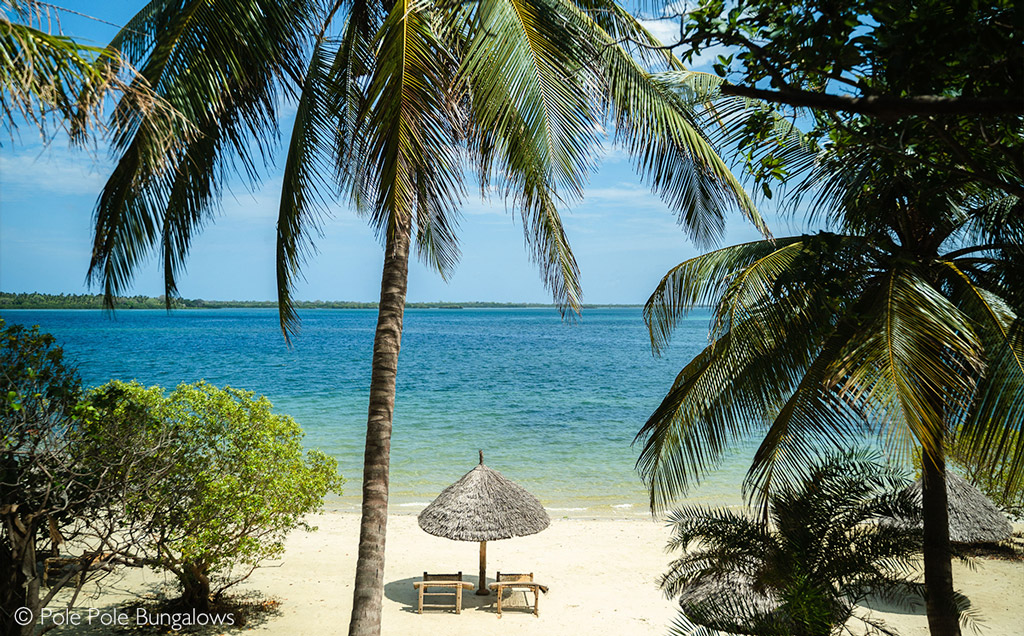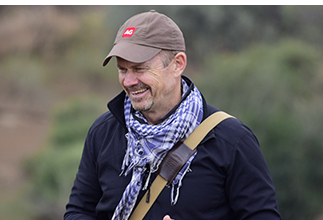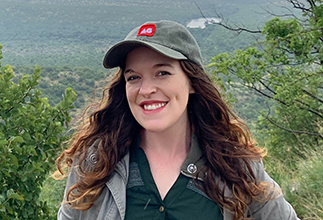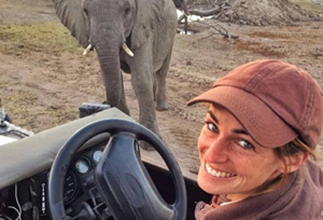
This is a copy of our weekly email newsletter. Subscribe here to receive the newsletter.
Ancient forest + nocturnal elephants

There is a plant so rare that it OCCURS ONLY on one rocky hilltop near my hometown. Nowhere else on the planet. Its human-given name is Encephalartos dyerianos – the Lillie cycad. Its numbers have been reduced to critically endangered levels by poachers – fueled by collectors and gardeners who feel that this prehistoric beauty should feature in their private collections rather than where nature intended. Go figure.
Anyway, two days ago, I hiked to the top of that hill and communed with these giants. I was accompanied by a small team of HEROES – anti-poaching folk who dedicate their lives (literally) to keeping rhinos safe. And cycads. The excellent news is that there is a plan being developed to ensure the safety in the wild of the remaining Lillie cycads. More about that later, once the ink is dry.
Elsewhere, South Africa’s Minister of the Environment et al has ordered sardine-fishing companies to CEASE FISHING in the vicinity of the last remaining African penguin colonies. The ban is temporary until all scientific input has been evaluated. Competition for food is thought to be among the pressures contributing to the decline of the African penguin population over the last century from more than a million breeding pairs to about 10,000 pairs. Hopefully, we will see more brave, far-sighted decisions like this from other people in positions of power.
Keep the passion

Simon Espley – CEO, Africa Geographic
From our Editor – Taryn van Jaarsveld

This week we are taking you on a journey to one of Kenya’s best-kept secrets: the Arabuko-Sokoke Forest. This ancient and almost eldritch forest, just inland from the small beach town of Watamu, is filled with weird, wonderful and endangered creatures found nowhere else on earth. The forest is a must-visit for naturalist and adventurers alike. Read our first story below to find out what makes this coastal forest so special.
New research shows that Chobe elephants are so affected by human farming activities, that they have learnt how to change their activity patterns to reduce risk of human encounters. Scientists found that Chobe’s intuitive elephants moved through the wildlife corridors in agricultural landscapes almost exclusively at night. Read more about this fascinating study in our second story below.
Happy celebrating Africa to you all!

Story 1
https://africageographic.com/stories/arabuko-sokoke-forest/
ANCIENT FOREST
Kenya’s magical Arabuko-Sokoke Forest, home to endangered creatures found nowhere else on earth, is a birder’s dream
Story 2
https://africageographic.com/stories/elephants-that-creep-in-the-dark-how-elephants-distinguish-between-human-activities/
SAVVY ELEPHANTS
Chobe elephants have learnt how to change their activity patterns to reduce risk of human encounters – new research
From our Scientific Editor – Jamie Paterson

I have some good news about the environment! (Yes, you read that correctly.) Did you know that the ozone layer in the atmosphere is gradually recovering and may even be fully repaired in the next 40 years?
It has been 35 years since humanity took the necessary action to phase out the use of chlorofluorocarbons (CFCs – chemicals once used in refrigerators and aerosols). These were burning holes in our ozone – the stratosphere layer responsible for shielding our planet from much of the Sun’s UV rays. Since peak levels of the early 1990s, the quantities of CFCs and other ozone-depleting gases in the mid-latitude stratosphere have fallen over 50%.
It just goes to show what rapid action can achieve…

Artsy Safari
Travel client Christine recently visited Kambaku Safari Lodge, Timbavati Private Nature Reserve, for an AG safari with pro-artist, Alison Nicholls:
“You know a trip has been great when you are sad to see it end and are already thinking about the next one shortly after. Alison’s art safari helped me reconnect with my art in an inspiring and joyful way. With Alison’s expert advice I noticed an improvement in my sketches on day one and learnt how to better observe wildlife to translate what I was seeing onto my page. The daily drives helped hone my ability to capture what I was seeing quickly, and to feel more comfortable using watercolour to sketch.
The accommodation at Kambaku was amazing – as was the food, and hospitality of the lodge staff. The AG team were also great to work with. They were very responsive and helpful with all my questions and travel logistics to ensure a positive trip. I’m so glad I signed up for this memorable experience that I will always remember. ”
 WATCH: The largest overland migration in the world has reached the Mara River and The Greatest Show on Earth – the crossing and recrossing of the river by the wildebeest herds – is in full swing at the moment. (43:13). Click here to watch
WATCH: The largest overland migration in the world has reached the Mara River and The Greatest Show on Earth – the crossing and recrossing of the river by the wildebeest herds – is in full swing at the moment. (43:13). Click here to watch
Click here to book a safari to see this with your own eyes.
To comment on this story: Login (or sign up) to our app here - it's a troll-free safe place 🙂.![]()






